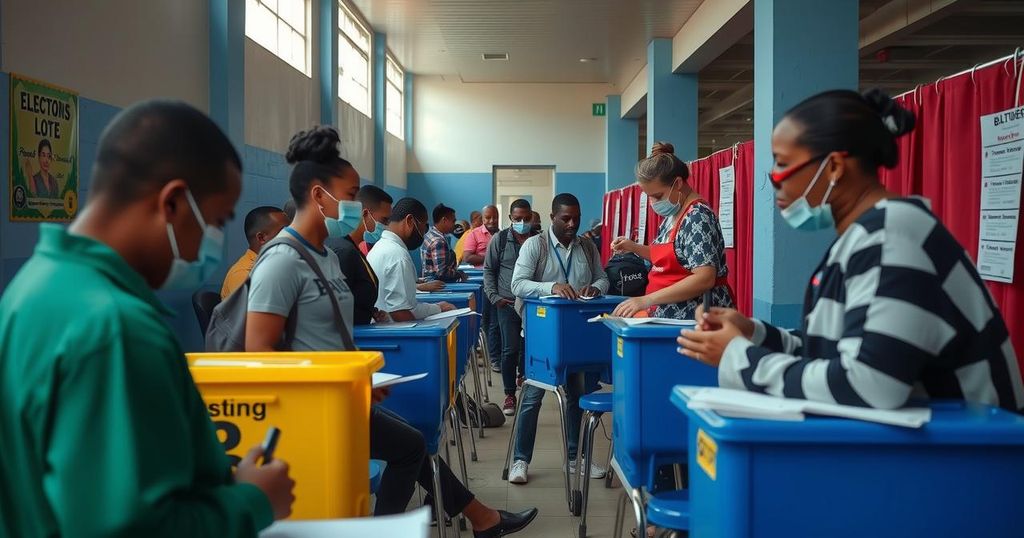Mauritius held elections on November 10, 2024, seeking to secure a second term for Prime Minister Pravind Jugnauth amid criticisms regarding a recent wiretapping scandal. The election involves over 1 million registered voters choosing representatives for 62 parliamentary seats. Jugnauth’s government is challenged by opposition leader Navin Ramgoolam as the country aims to maintain its democratic stability and strong economic performance.
On November 10, 2024, citizens of Mauritius participated in parliamentary elections, as the ruling party sought to secure a second five-year term for Prime Minister Pravind Jugnauth. This election marks the 12th since the nation gained independence from Britain in 1968. Recent controversies, including a brief ban on social media stemming from a wiretapping scandal, have heightened scrutiny of Jugnauth’s government. Nevertheless, the ruling Militant Socialist Movement aims to maintain its majority against opposition leader Navin Ramgoolam’s Alliance for Change. Mauritius boasts a robust economy characterized by its finance, tourism, and agricultural sectors, positioning it as one of Africa’s most stable democracies. It has garnered recognition for its high quality of life, ranking second in Africa on the Human Development Index, closely following the Seychelles. Currently, over 1 million individuals are eligible to vote, with 62 parliamentary seats available for election. The victorious party or coalition will form the government and appoint the next prime minister.
Mauritius, located approximately 2,000 kilometers off the east coast of Africa, has established itself as a model of democratic stability and economic progress within the region. Since achieving independence in 1968, it has experienced significant economic growth, primarily fueled by its thriving finance and tourism industries. The country was briefly recognized as a high-income nation in 2020, prior to the adverse effects of the COVID-19 pandemic on its tourism sector. The political landscape is characterized by multiple parties, and this election presents an opportunity for the electorate to shape the future of governance in the nation.
The recent elections in Mauritius represent a pivotal moment for the country, as the ruling party, led by Prime Minister Pravind Jugnauth, seeks to extend its mandate amid criticism and challenges. With a well-established economy and a significant voter base, the outcome of this election will not only influence domestic policy but also signal Mauritius’s continuing role as a beacon of stability and growth in sub-Saharan Africa. As the nation faces various political and social issues, the electorate’s voice will ultimately determine its direction.
Original Source: apnews.com






